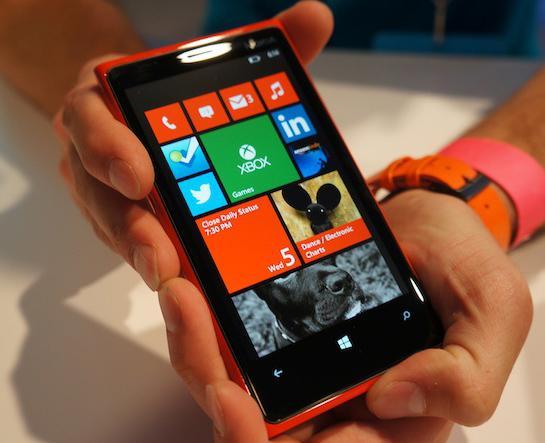
We’ve caught ourselves in some twisted back-and-forth with our favorite device manufacturers. Several years ago, they didn’t care so much about software updates. A few years ago, we didn’t care so much about software updates. I can’t quite place when the transition happened, when we all suddenly became so focused on those future pieces of software, but there’s no denying that it’s not just the people talking about it anymore.
Just look at the product launches. Most recently we watched HTC launch their new One device, the flagship of 2013. In typical Android-based device launch fashion, despite the handset being brand new, it’s not running the newest version of Android. Indeed, the One is launching with Android 4.1.x out of the box. But, here’s the kicker: HTC has already stated that the update to Android 4.2 is scheduled soon after the device’s launch.
And now, Microsoft is talking about the future, “reassuring” folks who have already purchased Windows Phone 8-based handsets, like the Lumia 920 or the Windows Phone 8X, that their device won’t be left in the cold when updates for their mobile platform trickle down the pipe. You’re safe. Your phone can be updated.
Okay, so that’s great, those devices (and all the other ones running Microsoft’s mobile OS) won’t be left behind. Of course, there’s a reason Microsoft is trying to calm any worry that might be out there, especially with Windows Phone rumors starting to pick up speed. We all know what happened with Windows Phone 7 devices, and the fact they didn’t get updated to Windows Phone 8. Some of them are running Windows Phone 7.8. It’s not quite the same. Is it mostly the same? Yes. But, still, it isn’t the software that people want or expected when they bought their phone.
HTC isn’t the only company that’s talked about a software update following a product’s unveiling. Motorola’s done it, too. It’s just the nature of the beast, it would seem, if you’re using Android. Is it all that bad? It used to be, sure. But now that Android is as good as it is, being upgraded to Android 4.2 shouldn’t be that huge of a deal for most people.
And this is where one would say, “But most people don’t care about software updates!” Yeah, I know. But obviously someone does. And no, it isn’t just to appease us “tech people.” The truth of the matter is, the moment you announce a new device and it doesn’t have the newest software –that’s currently available--, the conversation isn’t about “what’s coming next.” You’re launching a new device on old software. Oh, you’re going to update it at some point in the future? Of course you’re going to update it sometime in the future.
Or you won’t. Because that’s happened before. Phones forgotten. Never updated. Left to decay with their already ancient software. Left to live on the island of non-updated devices.
As I mentioned earlier, we’re caught in some strange version of the “chicken and egg” game. Did manufacturers start caring about software updates because the people started caring about software updates? Or did people start caring about software updates because companies talk about them?
My uncle has a Motorola DROID RAZR. Before his phone got updated to Android 4.1, he saw a commercial on TV that showed the DROID RAZR M. It was the one that featured Google Now, front and center. He didn’t care about the phone, but he asked me what the software was. I told him, and told him what I thought of it. He asked me if he could get it, and I said not yet, because his phone didn’t have the right version of Android.
In that moment, my uncle cared about which version of Android he was running. Before that? Not at all. After all, he bought the phone for what it did at the time, not for what it could do eventually. That changed when he was made aware by a national commercial showing Android’s new features. Now he asks me if there’s anything new coming to his phone.
He’s been converted.
Here’s my question to you, though: Should Microsoft be bringing up future Windows Phone updates at all? What happens when they talk it up, and then at some point down the road they can’t update every single Windows Phone 8-based device? That’s a pretty bad moment for Microsoft, if that were to happen. So why not just leave it alone? Let me know what you think.